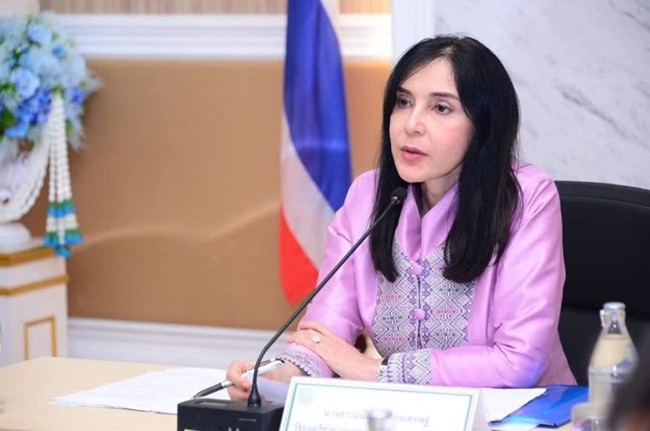
The much discussed banning of the use of three farm chemicals, namely paraquat, glyphosate and chlorpyrifos, has made progress after a meeting of government officials, chemical importers, farmers and consumers agreed that a ban would take effect from December 1. However, the resolution has first to receive approval from the National Hazardous Substances Committee (NHSC).
Deputy Minister of Agriculture and Cooperatives Mananya Thaiset attended the meeting of the four-party committee yesterday. The group agreed that paraquat, glyphosate and chlorpyrifos should be classified in the Type 4 category, starting this December. Chemicals in the Type 4 category can be prohibited for production, importation, export and distribution. The meeting resolved that the three farm chemicals pose a danger to farmers and consumers.
The committee’s decision will be presented to a meeting attended by Prime Minster Prayut Chan-o-cha and relevant agencies this week. The issue will then be proposed to the NHSC meeting for approval on October 27. Ms. Mananya said the NHSC has always expressed its intention to back decisions made by the Ministry of Agriculture and Cooperatives.
The Chairperson of the Association of the Confederation of Consumer Organization of Thailand (ACCOT), Boonyuen Siritham, said that members of her association have adopted a clear stance against the use of the three farm chemicals. Ms. Boonyuen said the measures imposed by the NHSC are not effective enough to ban the use of the three chemicals.
The organizational structure of the NHSC has been adjusted according to the amended Hazard Substances Act. The NHSC is chaired by Industry Minister Suriya Jungrungreangkit. The committee comprises 27 members from different sectors, including Permanent Secretaries for industry, agriculture and cooperatives, energy and public health as well as heads of the Department of Agriculture, the Department of Fisheries, the Department of Livestock Development, the Pollution Control Department, the Department of Energy Business, the Department of Land Transport, the Marine Department and the Customs Department. The committee is also joined by experts in chemistry, science, engineering and agriculture and representatives from the Ministry of Defense, the Royal Thai Police and the Office of Atoms for Peace (OAP). The members oversee issues relating to public health, consumer protection, sustainable agriculture and ways to protect the environment from hazardous substances.




